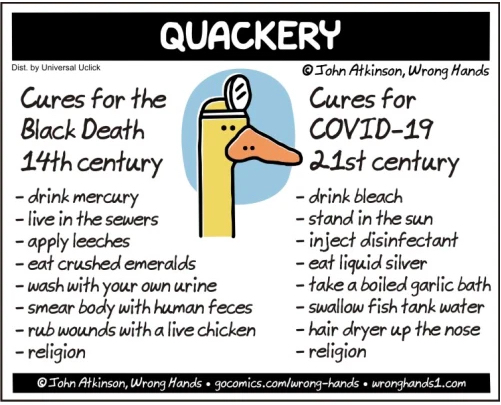Expert Tips on Figuring Out if a Health Claim Will Work for You
- At June 04, 2020
- By Katherine
- In Articles, News
 1
1

Living healthfully can be harder than you think, thanks to enterprising and sensationalized internet and media claims, blogs, articles, videos and websites.
How should you decide what health claims work? How would they work for you? How do you evaluate the science to ensure you are getting the most reliable and effective recommendations – ones that you and your doctor can trust, based on state-of-the-art scientific data?
 First, Consider the Source! Your Own Doctor(s)? A Qualified Medical Professional Who Specializes in the Field You Have a Question About?
First, Consider the Source! Your Own Doctor(s)? A Qualified Medical Professional Who Specializes in the Field You Have a Question About?
As a medically certified Registered Dietitian/Nutritionist, I personalize my recommendations for you based on a number of factors, as your doctor does. 1) I listen to what your goals are, 2) what you’d like to achieve, 3) I learn your medical conditions, 4) your medical history, 5) I gather your food or nutrition- related history, 6) biochemical data, 7) medical tests and procedures, 8) anthropometric measurements, 9) nutrition-focused physical findings, 10) your personal history and situation, 11) your family history, 12) your social history, 13) your habits, 14) your habits’ history, 15) your work life, 16) your family life, 17) what your doctor recommends, and more relevant information about your life. Then you and I, along with any of your doctor’s recommendations, decide on the best program for you, while continually monitoring, updating and supporting you along the way.
I was trained, as are all medical professionals, using the “scientific method.” The scientific method starts with a question. Then continues with systematic observation and experimentation, inductive and deductive reasoning, and the formation and testing of hypotheses and theories. It attempts to minimize the influence of bias or prejudice in the experimenter to discern how success is achieved.
 My obligation for the past 30+ years has been to stay informed of all scientific studies and findings relating to my field and to my clients’ specific needs. To achieve this, I never stop studying research in every medical field possible, but particularly nutrition, food, weight loss research and behavioral science. In fact, I’m required to have 75 continuing education credits every five years to maintain my “Registered Dietitian/Nutritionist” (RD/N) credentials. Continuing my studies is a life-long endeavor in my field because science is constantly evolving.
My obligation for the past 30+ years has been to stay informed of all scientific studies and findings relating to my field and to my clients’ specific needs. To achieve this, I never stop studying research in every medical field possible, but particularly nutrition, food, weight loss research and behavioral science. In fact, I’m required to have 75 continuing education credits every five years to maintain my “Registered Dietitian/Nutritionist” (RD/N) credentials. Continuing my studies is a life-long endeavor in my field because science is constantly evolving.
Second: From What Media Source Did The Health Claim Originate? My clients regularly send me claims they would like me to help them figure out. The first thing I need to find out is, what is the source of the claim? A newspaper article? A magazine or blog? A scientific journal? To continue my investigation, I’ll research the topic myself and ask:

- What have the past years or decades of research shown regarding this issue?
- What is the consensus from a variety of study types, populations, researchers and institutions?
- What are the quality of the studies, the researchers and the institutions?
- Are there any conflicts of interest related to the research?
Third: Was it a Legitimate Scientific Source? If I don’t already have the answer or want to research something myself, I’ll only go to scientific sources, ie, peer-reviewed, scientific journals.
Fourth: What Kind of Study Was Used and How Reliable Were the Study and the Researchers? There are five basic kinds of studies…
1. Randomized Controlled Trials: If you want to know how effective a treatment or diet is, randomized trials provide the most reliable answers. “Randomized” means divided into groups by chance. In RCTs participants are randomly assigned to one of two or more groups. Then one group receives the new diet or food being experimented with, while the other group receives something different, conventional, or a placebo. If the RCT is “double-blind,” (the gold standard), neither the researchers nor the subjects know who is receiving the treatment or the placebo so that the findings are as unbiased as possible. Examples: The 1. DASH (Dietary Approaches to Stop Hypertension) Diet Study, the first study establishing that fruits, vegetables and low fat dairy products lower blood pressure, a study of how 2. Gut Health Influences Insulin Resistance, a precursor to diabetes, and how 3. Drinking Tea and Tai Chi Exercise Prevent Bone and Muscle Loss in Post-Menopausal Women.
 2. Cohort Studies observe a group of people frequently over a period of many years – for instance, to determine how often a certain disease occurs. In a cohort study, two (or more) groups that are exposed to different things are compared with each other: For example, one group might drink alcohol while the other doesn’t. Or one group may eat a high fiber diet and the other doesn’t. The researchers then observe how the health of the people in both groups develops over the course of several years, whether they become ill, and how many of them pass away. Some prominent examples are 1.Harvard’s Women’s Health Study, 2. The Framingham Heart Study, 3. The National Weight Control Registry Study.
2. Cohort Studies observe a group of people frequently over a period of many years – for instance, to determine how often a certain disease occurs. In a cohort study, two (or more) groups that are exposed to different things are compared with each other: For example, one group might drink alcohol while the other doesn’t. Or one group may eat a high fiber diet and the other doesn’t. The researchers then observe how the health of the people in both groups develops over the course of several years, whether they become ill, and how many of them pass away. Some prominent examples are 1.Harvard’s Women’s Health Study, 2. The Framingham Heart Study, 3. The National Weight Control Registry Study.
3. Case-Control Studies compare people who have a certain medical condition with people who do not, but who are as similar as possible, for example, the same sex and age. Then the two groups are interviewed, or their medical files are analyzed, to find anything that might be risk factors for the disease. They are not as expensive or time-consuming as RCTs or cohort studies. But their limitations are that it is often difficult to tell which people are the most similar to each other and because the researchers usually ask about past events, they are dependent on the participants’ memories. For instance, this study looking at Dietary Patterns, Nutrition, and Risk of Breast Cancer.
4. Cross-Sectional Studies: The classic type of cross-sectional study is the survey: A representative group of people – usually a random sample – are interviewed or examined in order to find out their opinions or facts. Because this data is collected only once, cross-sectional studies are relatively quick and inexpensive. They can provide information on things like the prevalence of a particular disease. But they can’t tell us anything about the cause of a disease or what the best treatment might be. For instance, this Analysis of Unhealthy Foods, Race/Ethnicity, Sex, and Cardiometabolic Risk Factors in U.S. Adults.
5. Qualitative Studies help us understand, for instance, what it is like for people to live with a certain disease. Unlike other kinds of research, qualitative research does not rely on numbers and data. Instead, it is based on information collected by talking to people who have a particular medical condition and people close to them. Written documents and observations are used too. The information that is obtained is then analyzed and interpreted using a number of methods. For instance, this study exploring Influences on Food Choices of University Students.
The final but most important question: What is the best way to translate this science to recommendations that my clients and doctors trust and that they can use in their everyday lives? Well, you could say that’s where art mixes with science!
For more fabulous tips and simple, effective ways to lose weight,
buy her book, Diet Simple!










Mac Odell
Brilliant analysis and discussion during a crazy time of rumor, misinformation and downright lies.
Good luck generating a new California clientele..!!
CA should be even more receptive to your practice than DC.
Your book is on our shelf!
Write a new one and get on local media!
Virtual Hugs
Mac